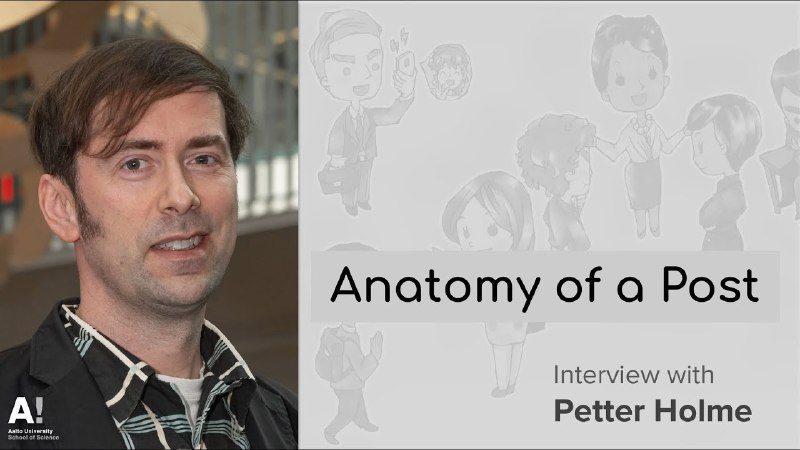group-telegram.com/sitpor/600
Last Update:
Anatomy of a Post | Interview with Petter Holme about his blog petterhol.me/blog
Join us for an in-depth discussion with Petter Holme, renowned for his influential blog on complexity science. In this interview, Petter discusses his motivations and the sustained effort required to manage a sophisticated science blog. He reflects on the beginnings of his blogging journey, the evolution of his content, and the decision-making process behind choosing blog posts over formal research papers.
Throughout the conversation with Abbas Rizi, Petter shares insights into the feedback he receives from readers, the unintended academic uses of his blog posts, and his views on the future of science communication in an increasingly digital world.
This dialogue also covers practical aspects for academics considering starting their own blogs, including Petter's personal approach to writing and managing content and the tools and resources that have been indispensable to him. Whether you're an academic, a student, or simply interested in the convergence of science communication and Complexity Science, this interview provides a thoughtful perspective on the impact and challenges of blogging in the scientific community. Join Petter Holme as he shares his experiences and advice for integrating blogging into professional scientific communication.
🔗 https://youtu.be/Wtjo7eWE76E
🎞 Watch on Instagram
🎧 Audio File
----------------------------------------------
@sitpor | sitpor.org
instagram.com/kr/sitpor.com_media
#سیتپـــــور به خاطر روایتگری در علم
BY Sitpor.org سیتپـــــور

Share with your friend now:
group-telegram.com/sitpor/600
